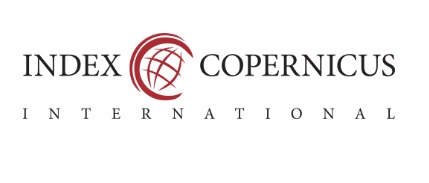In aid of community policy and framework development: A sustainable integrated community advancement program
Abstract
Aim: This paper describes the Sustainable Integrated Community Advancement Program, the University’s framework for social orientation and community involvement initiatives (SICAP). Community Development Programs, the Integrated Components of Extension Programs, Academic and Service Units, and the Commission on Higher Education, Philippines, all benefit from the framework’s comprehensive and
oordinated approach to stakeholder engagement.
Methodology: Using the Sequential Explanatory Method, which permits the collection and analysis of quantitative data to be followed by the collection and analysis of qualitative data, the researchers employed a mixed research methodology.
Findings: The findings demonstrated that the programs had integrated the participants into national life and vitality and fostered participation, empowerment, and enhancement. By adopting and utilizing the proposed framework, the University was able to create and launch timely, appropriate, and effective programs.
Implications/Novelty: The findings from this study will serve as the foundation for new policies, guidelines for their implementation, and a shift in the University’s priorities.
References
Bhattacharyya, J. 2004. “Theorizing Community Development.” Community Development 34(2): 05-34.
Botes, L., and Van Rensburg, D. 2000. “Community Participation in Development: Nine Plagues and Twelve Commandments.” Community Development Journal 35(1): 41-58.
Bradshaw, T. K. 2007. “Theories of Poverty and Anti-Poverty Programs in Community Development.” Community Development 38(1): 07-25.
Celeste, R. 2004. “Establishment of a Barangay Database Information System in Region 10.” Presented at the 9th National Convention on Statistics (NCS), October 4-5, Manila, Philippines.
Chavis, D. M., and Wandersman, A. 1990. “Sense of Community in the Urban Environment: A Catalyst for Participation and Community Development.” American Journal of Community Psychology 18(1): 55-81.
Craig, G., and Mayo, M. 1995. Community Empowerment: A Reader in Participation and Development. Atlantic Highlands, NJ: Zed Books.
Creswell, J. W. 2003. Research Design: Qualitative, Quantitative, and Mixed Method Approaches. Thousand Oaks, CA: Sage Publications.
Gilchrist, A. 2009. The Well-Connected Community: A Networking Approach to Community Development. Portland, OR: Policy Press.
McClenaghan, P. 2000. “Social Capital: Exploring the Theoretical Foundations of Community Development Education.” British Educational Research Journal 26(5): 565-582.
Pathumporn, J., and Nakapaksin, S. 2015. “Participatory Action Research Model for Sustainable Community Based Tourism Development.” International Journal of Business and Administrative Studies 1(3): 89-93.
Perkins, D. D., Hughey, J., and Speer, P. W. 2002. “Community Psychology Perspectives on Social Capital Theory and Community Development Practice.” Community Development 33(1): 33-52.
Ranjha, A. 2013. “Working Practices, Problems and Needs of the Community Development Projects in Punjab Province, Pakistan.” Doctoral dissertation, University of Dundee, Dundee, Scotland.
Sei, I. O. 2016. “Factors Influencing Community Participation in Rural Water Project Development: A Case of Matete Sub-County Kakamega County.” Doctoral dissertation, University of Nairobi, Nairobi, Kenya.
Vickers, M., Harris, C., and McCarthy, F. 2004. “University-Community Engagement: Exploring ServiceâA ̆ RLearning Options within the Practicum.” Asia-Pacific Journal of Teacher Education 32(2): 129-141.
Wanninayake, S. 2016. “Finding a Place for Residence; IDPS Remaining with Host Communities: A Case of Sri Lanka.” International Journal of Humanities, Arts and Social Sciences 2(2): 64-73.
Williams, C. 2011. “Research Methods.” Journal of Business & Economics Research (JBER) 5(3): 65-72.
Woolcock, M., and Narayan, D. 2000. “Social Capital: Implications for Development Theory, Research, and Policy.” The World Bank Research Observer 15(2): 225-249.
Zlotkowski, E. 1998. Successful Service-Learning Programs. New Models of Excellence in Higher Education. Bolton, MA: Anker Publishing Company.

This work is licensed under a Creative Commons Attribution-NonCommercial 4.0 International License.












.png)










